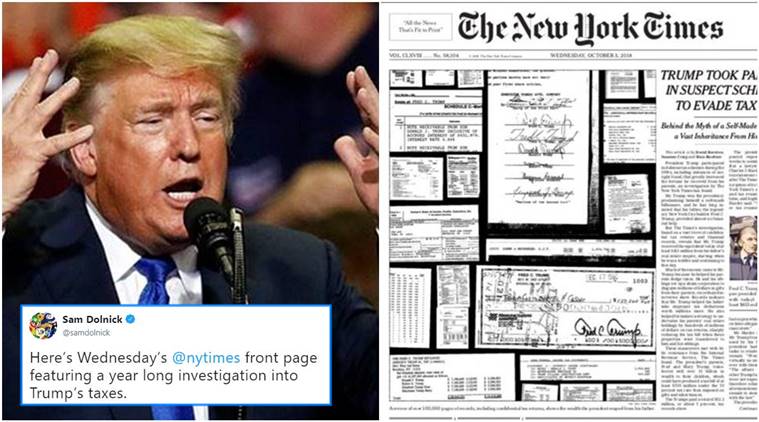
Every dollar is disclosed for the first time: $8,768,330 paid to him by ACN, a multilevel marketing company that was accused of taking advantage of vulnerable investors $50,000 from the Lifetime channel for a “juicy nighttime soap” that never materialized $5,026 in net income from a short-lived mortgage business and $15,286,244 from licensing his name to a line of mattresses.

Trump and his companies spanning more than two decades. This article is based on an examination of data from those returns, which include personal and business tax filings for Mr. He has gone to extraordinary lengths to maintain secrecy, most notably his refusal to honor 40 years of presidential tradition and release his tax returns. Trump’s wealth has been attempted many times with varying degrees of success - an exercise made difficult by the opaque nature of his businesses, his penchant for exaggerations and lies, and his willingness to threaten or sue those who question his rosy narratives.
Tv show on trump finances ny times full#
Instead, he delivered a broad attack, calling the article “fake news” and “yet another politically motivated hit piece full of inaccurate smears” appearing “before a presidential debate.” In response to a request for comment, a White House spokesman, Judd Deere, did not dispute any specific facts. Indeed, the tax records show that his golf properties have been hemorrhaging millions of dollars for years.

Trump secretly received from his father allowed him to assemble a wobbly collection of Atlantic City casinos and other disparate enterprises that then collapsed around him, the new influx of cash helped finance a buying spree that saw him snap up golf resorts, a business not known for easy profits.

Trump, who, off camera, peddled worthless get-rich-quick nostrums like “Donald Trump Way to Wealth” seminars that promised initiation into “the secrets and strategies that have made Donald Trump a billionaire.”
Tv show on trump finances ny times tv#
And there were schemes that exploited misplaced trust in the TV version of Mr. There were seven-figure licensing deals with hotel builders, some with murky backgrounds, in former Soviet republics and other developing countries. There was $500,000 to pitch Double Stuf Oreos, another half-million to sell Domino’s Pizza and $850,000 to push laundry detergent. The show’s big ratings meant that everyone wanted a piece of the Trump brand, and he grabbed at the opportunity to rent it out. Tax records show that Donald Trump earned $197 million directly from “The Apprentice,” and $230 million from licensing and endorsement deals that followed. It was making himself famous - Trump-scale famous - and monetizing that fame.

Trump’s genius, it turned out, wasn’t running a company. And then how, in an echo of the boom-and-bust cycle that has defined his business career, he led himself toward the financial shoals he must navigate today. Trump’s improbable election to the White House.īut while the story of “The Apprentice” is by now well known, the president’s tax returns reveal another grand twist that has never been truly told - how the popularity of that fictional alter ego rescued him, providing a financial lifeline to reinvent himself yet again. Twelve years later, that image of the self-made, self-saved mogul, beamed into the national consciousness, would help fuel Mr. The red ink spilled from everywhere, even as American television audiences saw him as a savvy business mogul with the Midas touch. Trump filed his individual tax return reporting $89.9 million in net losses from his core businesses for the prior year. Months after that inaugural episode in January 2004, Mr.


 0 kommentar(er)
0 kommentar(er)
